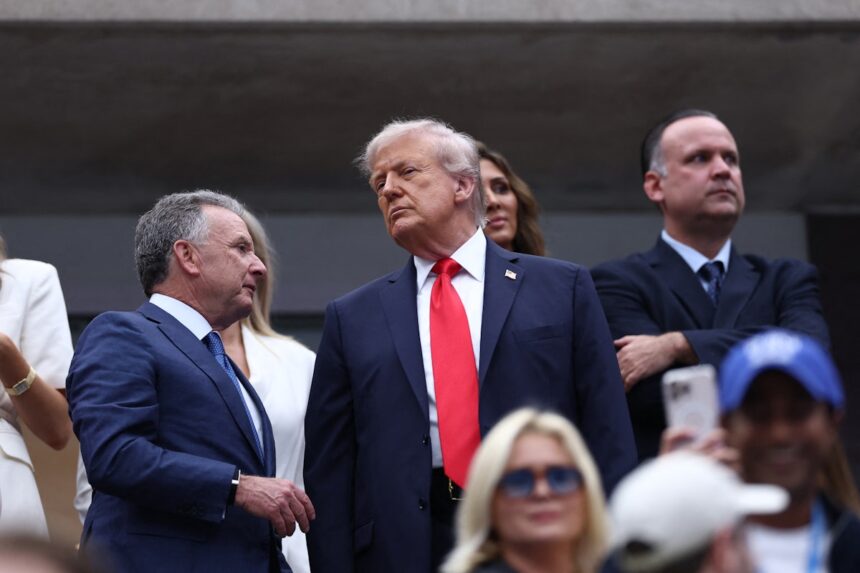A recent investigative report by The New York Times uncovers a series of transactions that significantly benefited three influential families: the Trumps, the Witkoffs, and the royal family of the United Arab Emirates (UAE). The report highlights two interconnected deals that took place over a relatively short time frame, revealing potential ethical breaches and national security concerns.
In May, an Emirati royal, Sheikh Tahnoon bin Zayed Al Nahyan, made headlines by investing $2 billion in World Liberty Financial, a cryptocurrency company associated with the Trump and Witkoff families. This substantial investment propelled World Liberty Financial to a prominent position within the rapidly evolving cryptocurrency sector almost overnight.
However, the intrigue deepens with a subsequent deal struck just weeks later, wherein the White House consented to sell the UAE hundreds of thousands of valuable artificial intelligence chips to bolster their technological capabilities. This agreement raised alarms among various officials within the Trump administration due to the UAE’s relationship with China, a nation viewed with skepticism regarding its intentions and security implications. Notably, dissenting voices, such as David Feith from the National Security Council, were sidelined amid controversy when Laura Loomer, a vocal Trump supporter, questioned their loyalty, resulting in their removal from influential positions.
With Feith and others out of the picture, David Sacks, a Silicon Valley investor with close ties to Trump and designated as a czar for AI and cryptocurrency, assumed a pivotal role in facilitating the chip negotiations. A White House ethics waiver was reportedly issued to Sacks, allowing him to engage directly in these negotiations, further complicating the ethical landscape surrounding these transactions.
While The Times asserts that there is no conclusive evidence linking the two deals as a quid pro quo arrangement, ethics lawyers have argued that the transactions breach established norms in American political and diplomatic conduct, particularly concerning deal-making among senior officials and their families. Prominent economist Ryan Cummings expressed that if proven connected, these transactions could represent the largest public corruption scandal in U.S. history, dwarfing previous controversies, including the Teapot Dome scandal.
Political analysts, including Dan Nexon of Georgetown University, believe the reported findings illuminate a troubling aspect of U.S. foreign policy, suggesting that the Trump administration’s overarching strategy could be characterized as kleptocracy. Senator Elizabeth Warren weighed in on the matter, criticizing the administration for what she described as monetizing foreign crypto deals while eroding essential safeguards for advanced technology. Warren called for a reassessment of any forthcoming cryptocurrency legislation until these issues are thoroughly examined and addressed.
The revelations in this exposé raise significant questions about the intersection of personal interests, national security, and ethical governance, illuminating the complex challenges faced by policymakers in navigating these delicate waters.







